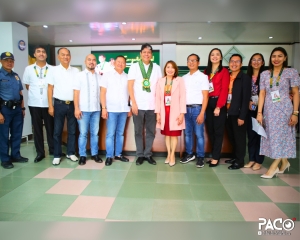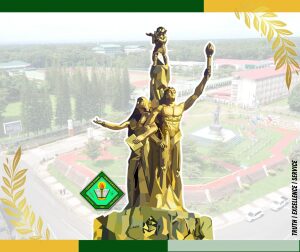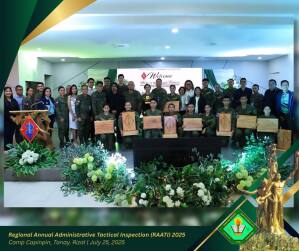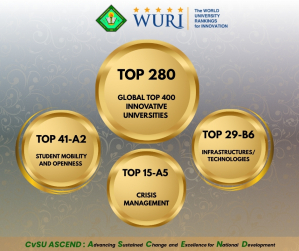![]()
(PRESS RELEASE). The Southeast Asian Ministers of Education Organization Regional Centre for Higher Education and Development (SEAMEO RIHED) and the British Council have come together in the launch of the Project on Strengthening Leadership with Gender Equity, Diversity, and Inclusivity (EDI) in HEIs in the Greater Mekong Sub-region (GMS) and Timor-Leste.
On 7 February 2022, SEAMEO RIHED, together with British Council, held the “Project Launch and Leadership Forum: Pathway towards Leadership with Gender Equity, Diversity, and Inclusivity in Higher Education”, which welcomed the participation of 14 senior government officials from 11 SEAMEO Member Countries and over 70 leaders and designated representatives of universities from the GMS (Cambodia, Lao PDR, Myanmar, Thailand and Vietnam), Timor-Leste and Brunei Darussalam, Indonesia, Malaysia, the Philippines as well as 2 Project Consultants from the Institute of Development Studies (IDS), University of Sussex and 5 UK partner universities.
Opening the Forum, Asst. Prof. Dr. Romyen Kosaikanont, Centre Director of SEAMEO RIHED, shared that the Project brings together the concerted efforts of governments and a total of 35 government nominated Higher Education Institutions to work together through collective learning to co-create a more gender equitable, diverse, and inclusive higher education sector relevant to the region’s institutional and cultural contexts. Additionally, she noted that gender EDI for the Project has been situated within a leadership framework in the realisation that working for gender EDI is a continuous process and needs engagement from all stakeholders under leadership that is committed and equipped with shared goals and tools to lead positive change. The Project also benefits from the strong partnership and technical support of the British Council and UK Consultants to ensure opportunities for leaders to exchange experiences, take back tools as well as good practices and policy options to lead change and contribute to re-defining a common space in higher education for the region of Southeast Asia.
On behalf of the British Council, Mr. Leighton Ernsberger. Director, Education and English for East Asia, British Council, welcomed the participants, and related the project’s objectives of providing common space to share and reflect on gender equity, diversity, and inclusivity, igniting new ideas between Southeast Asian and UK universities, and empowering university leaders with innovative and unique leadership tools to embrace gender equity, diversity, and inclusivity in policymaking and institutional operations, as well as building a sustainable higher education community.
The remarks were followed by Keynote Addresses from Assoc. Prof. Dr. Chalidaporn Songsamphan, Co-President of the Asian Association of Women’s Studies, and Dr. Linda Waldman, Director of Teaching and Learning, Institute of Development Studies, Sussex University. Assoc. Prof. Dr. Chalidaporn reminded the Forum that achieving an equal number ratio between males and females should not always be considered a victory for gender equity and that increasing the number of women represented in any area alone would not solve this inclusivity challenge. The same implication was reflected in Dr. Linda’s address where she presented the evolution of approaches towards gender equity development during the past decades and pointed out lessons learnt along the path, highlighting the important role of structure and institutions in nurturing gender equity, especially in the field of scientific research. The perspectives on gender equity from both Thai and UK speakers demonstrated that gender equity and inclusivity remain global and regional challenges.
A Panel Discussion on “Leadership for Gender EDI: Challenges, Needs and Ways Forward” was then moderated by Dr. Juliet Millican, from the Project Consultant team, and invited senior government officials and leaders of higher education from 3 SEAMEO Member Countries, including Cambodia, Malaysia and the Philipines, to discuss current challenges about gender equity, diversity, and inclusivity in higher education leadership, and opportunities for positive change and regional collaboration.
H.E. Mr. Mak Ngoy, SEAMEO RIHED Governing Board Member and Director General, Directorate General of Higher Education, Ministry of Education, Youth and Sport, Cambodia noted the importance to start with education, not only to raise awareness for policymakers and implementors but also for the broader community and society to better understand gender and how to promote equity, diversity, and inclusiveness. He suggested focusing on collaboration and the development of a joint curriculum for students to study gender, equity, diversity, and inclusiveness. Assoc. Prof. Dr. Yazrina Binti Yahya, SEAMEO RIHED Governing Board Member and Deputy Director, Centre for Leadership Sustainability (CLS), Higher Education Leadership Academy (AKEPT), Malaysia noted that while there are many women enrolled in higher education, many of whom receive good results and achieve success academically, this is not always translated into their working lives as structural support for gender equity is still lacking.
Dr. Aldrin Arenas Darilag, RMT, RN, CHRP, Commissioner, Commission on Higher Education, The Philippines proposed 4 important areas for regional collaboration. First, to address the intersectionality of gender and poverty and empowerment of women through education on reproductive health and rights. Secondly, continued capacity building and coaching of women in leadership positions. Third, the sustained sharing of best practices across the region and, finally, confronting harassment within higher education institutional contexts.
In conclusion, all participants, including SEAMEO RIHED, the British Council, the Project Consultant team, senior government officials in Higher Education from the 11 SEAMEO Member Countries, as well as representatives of Southeast Asian and UK universities reaffirmed their commitment to the Project and in working towards more equitable, diverse, and inclusive leadership in higher education by performing the symbol for the verb to commit in sign language. The Project on Strengthening Leadership with Gender Equity, Diversity, and Inclusivity in HEIs in the GMS and Timor Leste is part of a more comprehensive SEAMEO RIHED Programme on Enhancing Capacities for Collective Learning and Continuous Development of Higher Education Institutions in the SEAMEO Region, which aims to push forward innovative learning and teaching, futuristic leadership and good governance, future-oriented internationalisation, and sustainable research ecosystems.
For more information, please visit: https://rihed.seameo.org/



